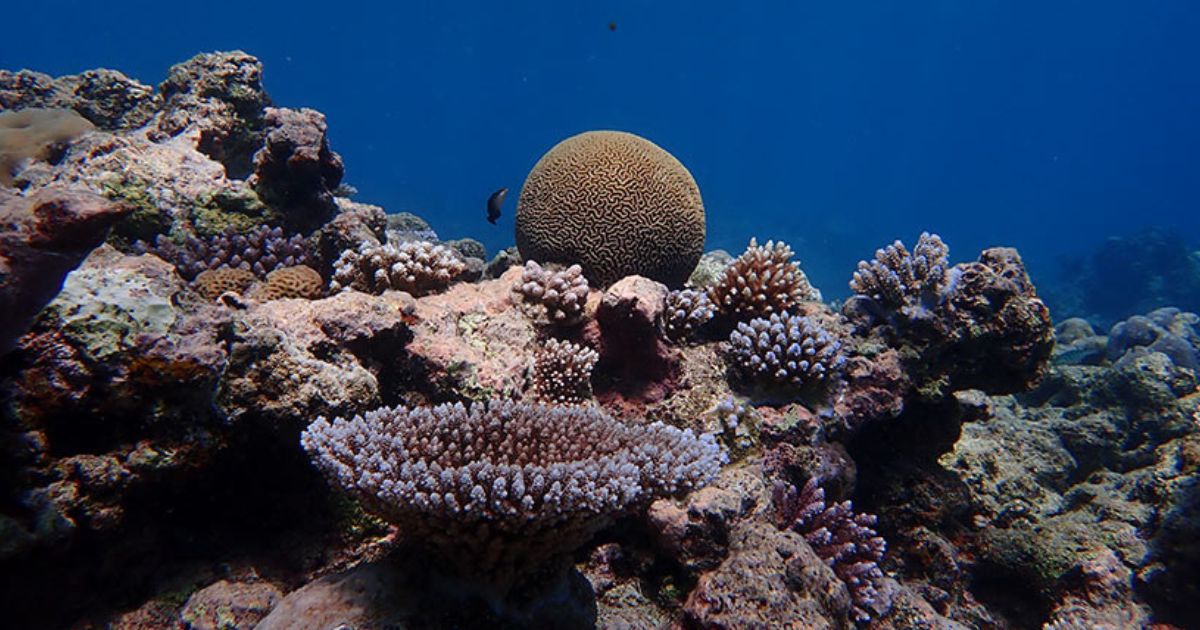A Newcastle University-led study focused on the Pacific Island nation of Palau and has shown that historic increases in the thermal tolerance of coral reefs are possible.
The results demonstrate how this capacity could reduce future bleaching impacts if global carbon emissions are cut down.
Drawing on decades of field observations, the scientists modelled many possible future coral bleaching trajectories for Palauan reefs, each with a different simulated rate of thermal tolerance enhancement. They found that if coral thermal tolerance continues to rise throughout the 21st century at the most-likely historic rate, significant reductions in bleaching impacts are possible.
Published in the journal Nature Communications, the results affirm the scientific consensus that the severity of future coral bleaching depends on carbon emissions reductions. High-frequency bleaching can be fully mitigated at some reefs under low-to-middle emissions scenarios where, for example, the Paris Agreement commitments are fulfilled. However, such bleaching impacts are unavoidable under high emissions scenarios where society continues to rely on fossil-fueled development.
Study lead author, Liam Lachs, is a part of Newcastle University’s Coralassist lab. “Our study indicates the presence of an ecological resilience to climate change, yet also highlights the need to fulfil Paris Agreement commitments to effectively preserve coral reefs,” Lachs said. “We quantified a natural increase in coral thermal tolerance over decadal time scales which can be directly compared to the rate of ocean warming. While our work offers a glimmer of hope, it also emphasizes the need for continued action on reducing carbon emissions to mitigate climate change and secure a future for these vital ecosystems.”
Study co-author, Dr. James Guest, of Newcastle University’s School of Natural and Environmental Sciences, added: “We know that coral reefs can increase their overall thermal tolerance over time by acclimatization, genetic adaptation or shifts in community structure, however we know very little about the rates at which this is occurring. This study uses data from a remote Pacific coral reef system and estimates the rate of increase in tolerance since the late 1980s. The results provide some hope that reefs can keep up with increasing temperatures, but only if strong action is taken on climate change.”
This study was the result of a collaborative visit the lead author undertook in 2021 to work with Professor Simon Donner’s Climate and Coastal Ecosystems Laboratory at the University of British Columbia, Canada. “This study shows the potential for some coral reefs to become more resilient to future climate change-fueled heat waves,” Prof. Donner said. “That resilience, however, can also come at a cost, in terms of reduced reef diversity and growth. Without sharp cuts in greenhouse gas emissions over the next two to three decades, the reefs in the Pacific won’t provide the resources and protection from waves that Pacific peoples have depended upon for centuries.”



